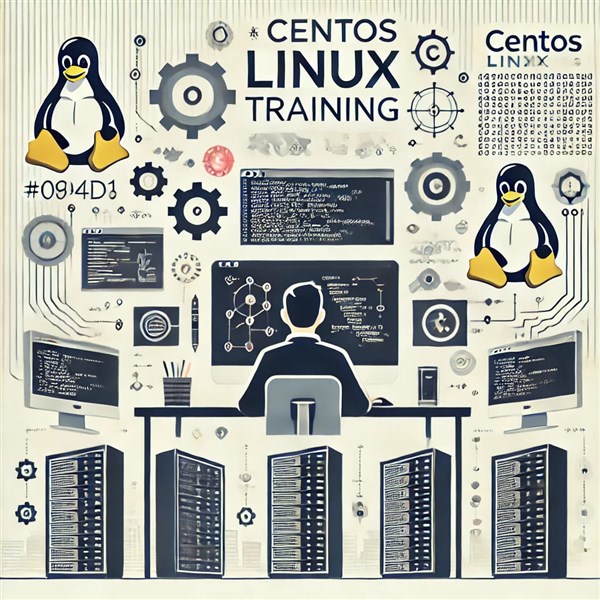Unable to find what you're searching for?
We're here to help you find it
The demand for Linux-based systems in the IT world is stronger than ever. Whether it's powering cloud servers, supporting enterprise applications, or driving DevOps pipelines, Linux is everywhere — and CentOS has long been a staple in this ecosystem. Known for its stability, enterprise-readiness, and compatibility with Red Hat Enterprise Linux (RHEL), CentOS offers an ideal platform for learning core Linux skills.
But beyond being just another Linux distribution, CentOS Linux training can be a transformative step in your IT career. Whether you're an aspiring system administrator, a cloud engineer, or a DevOps specialist, investing time in learning CentOS can lead to job opportunities, certifications, and real-world problem-solving skills.
Let’s break down how CentOS Linux training can elevate your career and why it remains relevant in today’s tech landscape — even as CentOS Stream and its successors take the stage.
CentOS was originally created as a free, open-source alternative to RHEL, making it widely used in data centers and enterprise environments. Learning CentOS means you're essentially learning how to navigate and manage RHEL — a valuable skill since many companies base their infrastructure on Red Hat or its clones (AlmaLinux, Rocky Linux, Oracle Linux).
By mastering CentOS, you’ll understand:
These are core administrative skills that are transferable across any major Linux distro.
If you're eyeing certifications like:
Then CentOS training is a perfect launchpad. The commands, system architecture, and configuration tools are nearly identical to what you'd find in Red Hat environments. Many professionals use CentOS for home labs and exam prep because it's accessible, lightweight, and fully compatible with RHEL-based exam requirements.
After completing CentOS training, you’ll be prepared for roles like:
Recruiters often look for real-world Linux experience, and CentOS training provides the practical knowledge to install, configure, and manage Linux servers from the ground up.
CentOS training doesn’t just teach you theory. It involves hands-on labs and real-world scenarios where you’ll work with:
This experience builds your confidence in managing production systems and troubleshooting common server issues — skills that are essential in any enterprise IT job.
DevOps engineers often work in environments that rely on Linux servers to deploy, test, and run containerized applications. CentOS training teaches you how to:
Additionally, tools like Ansible, Docker, and Kubernetes often run on CentOS or RHEL-based platforms. By understanding CentOS, you gain the underlying operating system skills needed to confidently deploy and manage infrastructure in modern CI/CD workflows.
Security is a hot topic across IT domains, and CentOS training includes best practices around:
These are real-world, resume-worthy skills that demonstrate your ability to manage secure and compliant Linux environments — a must in industries like finance, healthcare, and government.
Whether it's Amazon EC2, Google Cloud Compute Engine, or OpenStack, CentOS is often the base OS for cloud instances. With CentOS training, you learn how to:
This training can help you move into cloud admin or cloud architect roles, especially in hybrid or on-premise setups where Linux is a dominant force.
One of the coolest aspects of CentOS training is that it empowers you to build your own sandbox environment. Many learners set up labs to:
These labs become valuable showcases of your self-driven learning and can even be highlighted in interviews or on your GitHub portfolio.
The CentOS and wider RHEL ecosystem has a strong community of sysadmins, developers, and IT professionals. Through forums, IRC, and GitHub, you can:
Being involved in the open-source community builds your professional network, reputation, and learning opportunities.
Yes, CentOS 8’s shift to CentOS Stream caused a stir, but CentOS Linux 7 remains supported through 2024, and many companies still rely on it. Additionally, the skills you learn in CentOS translate perfectly to its successors like:
In other words, learning CentOS still gives you the foundational RHEL-based skill set used in countless enterprises — past, present, and future.
Conclusion
In the world of enterprise IT, cloud computing, and open-source innovation, Linux is non-negotiable — and CentOS is one of the most trusted platforms to begin your journey. CentOS Linux training not only equips you with essential system administration skills but also paves the way for certifications, job opportunities, and deeper DevOps expertise.
Whether you're trying to land your first IT role, aiming to transition into Linux systems management, or want to scale your DevOps capabilities, CentOS is a powerful launchpad.
Koenig Solutions is a leading IT training company providing certifications in top technology courses, including CentOS Linux Training. We have a team of experienced trainers who are dedicated to helping you gain a comprehensive understanding of CentOS Linux, enabling you to leverage its functionalities to the fullest. Our training modules are designed to cater to both beginners and experienced IT professionals.
With Koenig Solutions, you can rest assured that you will be equipped with the necessary skills to boost your IT career. So, don't wait! Enroll in our CentOS Linux Training today and take the first step towards a successful IT career.

Aarav Goel has top education industry knowledge with 4 years of experience. Being a passionate blogger also does blogging on the technology niche.










